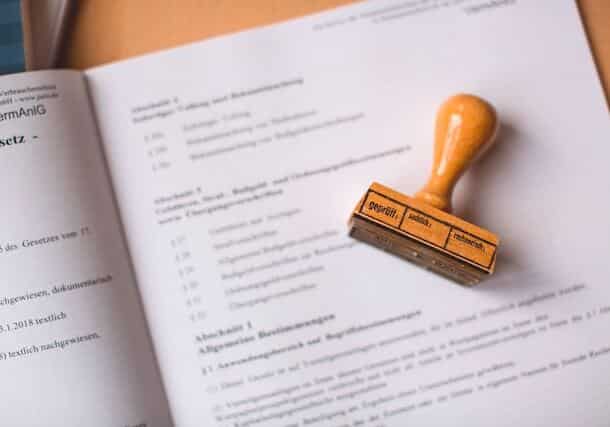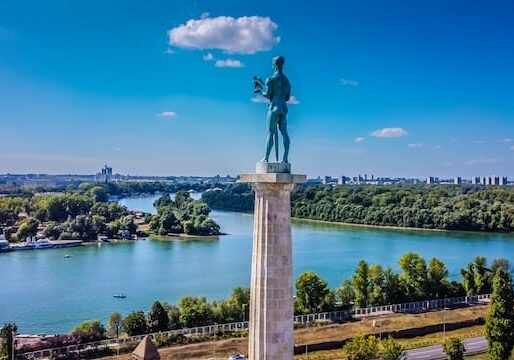Serbia, a country with a rich history and cultural heritage, offers people with Serbian ancestry the opportunity to acquire citizenship by descent. This process is an invaluable link for those with Serbian roots to connect with their heritage and enjoy the benefits of being part of the Serbian nation.
In this guide, we’ll go over the steps required to apply for Serbian citizenship, what a foreign citizen needs to provide to the country’s internal affairs and how you can prove your Serbian descent.
Eligibility Criteria for Serbian Citizenship by Descent

It functions in much the same way as the rest of the world, and in simple terms means that you can possibly get Serbian citizenship if you have a Serbian parent. However, this does mean that you’ll have to prove your Serbian ancestry.
This typically involves providing documentation such as birth certificates of Serbian parents or grandparents, marriage certificates, and other relevant documents that establish a clear familial connection to Serbia. The key criterion is proving that a parent was a Serbian citizen at the time of the individual’s birth, regardless of whether the birth occurred in Serbia or abroad.
According to the government’s guidelines, “citizenship of the Republic of Serbia is acquired by children if both or one parent is a national of the Republic of Serbia at the moment of the child’s birth.”
Limitations
It’s important to note that acquiring citizenship by descent is limited by the Serbian government to only one generation. That means, unlike in the UK, you can’t gain citizenship through your grandparents.
It also states that Serbian citizens should report a child’s birth to the relevant diplomatic or consular mission of the Republic of Serbia so that its name can be entered in the register of citizens of the Republic of Serbia.
In some countries, however, this must be done before the child’s 18th birthday. Serbia, on the other hand, makes provisions if this isn’t the case and you are stateless.
It says that if your parents were nationals of the Republic of Serbia at the time of your birth, if you are of age, but under 23, and if, as a child, you were left without citizenship and were not registered, you should file an application to that effect with the diplomatic or consular office of Serbia.
It was previously possible to enter your child into the birth register of former Yugoslavia, but since the age is limited to 23, they must have been born no later than 1992, placing the cut-off at 2015.
The Application Process

It is worth mentioning again that you can only apply for Serbian citizenship by descent up to the age of 23. To acquire Serbian citizenship (or pass it on to your children if born abroad), the birth must be registered through the Serbian Consulate General in your country.
The following documents must be presented to acquire citizenship and subsequently apply for a Serbian passport:
- Form No. 14: Application for registration of birth
- Form No. 13: Application for Citizenship
- Original birth certificate of the child issued by the country of birth
- Proof of Serbian citizenship of the parents.
- Proof of permanent residence or citizenship of the parents in the country of application
- Photocopy of a valid passport of both parents and child
- Marriage Certificate of parents. If married outside of Serbia, marriage needs to be registered in the Registry of Marriages in Serbia.
- Two passport-size photos
Additional documents
Based on the strength of your application, there are additional documents that might be required to satisfy applicable regulations:
- If a single parent makes the application, a written statement declaring consent of the other parent or a parenting court order is required
- Birth certificate apostilled and translated into Serbian language by an authorized person
- If parents are not married, evidence of paternal recognition is required, such as a legal document or signed and certified statement, written or translated into Serbian.
- Proof of foreign citizenship is required if only one parent is a Serbian citizen. Foreign citizenship is proven through a passport or citizenship certificate issued by a foreign country.
Applications can be made through the post and in person. However, if you want to apply in person, you must make an appointment by booking a slot online. To obtain Serbian citizenship through this method, there is a fee equivalent to about $14, although fees can change without prior notice.
Acquire citizenship by admission
In addition to acquiring Serbian citizenship through your parents, there is another avenue for a foreign national or family members to get a second passport.
According to Serbian law, a member of the Serbian people who doesn’t reside within the territory of the Republic of Serbia may be admitted into the citizenship of the Republic of Serbia provided that they are 18 years of age.
However, they need to prove that their working capacity is not compromised and submit a written statement declaring the Republic of Serbia as their own country.
Acquiring Serbian citizenship through this method, you’ll need to provide the documents below to the Department of Internal Affairs:
- Completed request for admission into the citizenship
- Statement that recognizes the Republic of Serbia as their own country
- Original Birth Certificate not older than one year
- Original of the Marriage Certificate
- Original Citizenship Certificate
- Proof of residence in the country they are applying from
- Photocopy of passport
Dual and Foreign Citizenship
Serbia permits dual citizenship, allowing individuals to retain their current citizenship while acquiring Serbian nationality. Thanks to international treaties, this means that Serbian citizens can have a Serbian passport and a passport of their second country.
This is particularly advantageous for American citizens born to Serbian emigrants as Serbian citizenship by descent enables them to enjoy the benefits of citizenship in both countries.
However, for non-Americans, it’s essential to understand the laws of other countries regarding dual citizenship, as some nations have restrictions or specific conditions under such arrangements that could impact your current citizenship. For example, some countries require you to renounce your current citizenship or any previous citizenship when you acquire Serbian citizenship.
Benefits of Acquiring Serbian Citizenship
Holding a Serbian passport opens up various opportunities, including the ability to travel visa-free to many countries, especially within Eastern Europe.
When you acquire Serbian citizenship, it also allows individuals to live, work, and study in the Republic of Serbia, participate in the political process, and access public healthcare and other social services.
Benefits of having citizenship to the Republic of Serbia

Visa free or simplified visa access: Serbian passport holders enjoy visa free or visa on arrival access to many countries, including those in Europe’s Schengen Area for short stays. This makes international travel for tourism, business, or short-term study much easier and less bureaucratic, enhancing mobility and global connectivity.
Cultural and dducational opportunities: Serbia has a rich cultural heritage and a strong educational system. Being a Serbian citizen allows for seamless access to this cultural milieu and educational institutions. There’s an opportunity to study at well-regarded universities and engage deeply with the country’s history, arts, and traditions.
Healthcare and social services: Citizens of Serbia have access to the country’s healthcare system, which includes both public and private healthcare facilities. Although the public healthcare system faces certain challenges, one has the right to healthcare services as a citizen, which can be significantly cost-effective compared to private healthcare costs in many other countries.
Property ownership and business opportunities: Serbian citizenship allows unrestricted property ownership in the country. This is particularly advantageous for buying Serbian in real estate or starting a business in Serbia. The country’s growing economy and investment-friendly climate can offer lucrative opportunities for entrepreneurs and investors.
Cultural Integration and Language Requirements

Serbian is the official and primary language of Serbia. It’s a South Slavic language and is written in both Cyrillic and Latin scripts, with both being officially recognized and widely used.
Serbian Cyrillic is considered traditional and legally prescribed, while the Latin script is more influenced by international usage and is commonly used in informal communication.
While not an official language, English is widely taught in schools as a second language and is commonly spoken, especially among the younger population and in urban areas. Proficiency in English facilitates international business and tourism.
When you want to obtain citizenship, it helps you communicate with a law firm on important matters such as citizenship law, proving a clean criminal record, or going through the standard naturalization process.
Key Takeaways Serbian Citizenship by Descent
Acquiring Serbian citizenship by descent is a valuable opportunity for individuals with Serbian roots to reconnect with their heritage.
The process, while straightforward, requires careful attention to detail in preparing and submitting the necessary documentation. As a rule, always ensure any written statement is translated into Serbian and apostilled when making an application for Serbian citizenship.
With the benefits of dual citizenship, individuals can enjoy the best of both worlds, maintaining their current nationality while embracing their Serbian identity.
Frequently Asked Questions about Serbian Citizenship by Descent
Does the gender of the Serbian parent matter?
No, it doesn’t matter which parent carries the Serbian citizenship as long as it can be proven.
Can an American become a Republic of Serbia citizen?
Yes, as long as one of the legal parents is a Serbian national and the American is under the age of 23 when making an application for acquiring citizenship.
What does Serbian law say about acquiring citizenship when born in the former territory of the Republic of Yugoslavia?
A citizen of another republic of the former Socialist Federal Republic of Yugoslavia, or a citizen of another state who has come to the territory of the former territory of the Republic of Yugoslavia can be admitted into the citizenship of the Republic of Serbia if they have a registered residence in the Republic of Serbia on 31 December 2016 and on the day the application is submitted.
Can you get permanent residency in the Republic of Serbia?
Yes, you can get permanent residency under Serbian law if you have uninterrupted residence in the country for at least three years on a temporary residence permit.
However, the law states that “continuous residence” is defined as an absence from the country for up to ten months or a one-time absence for up to six months.
This means that you must have been in the country for at least three years and haven’t left Serbia for periods longer than stipulated.



